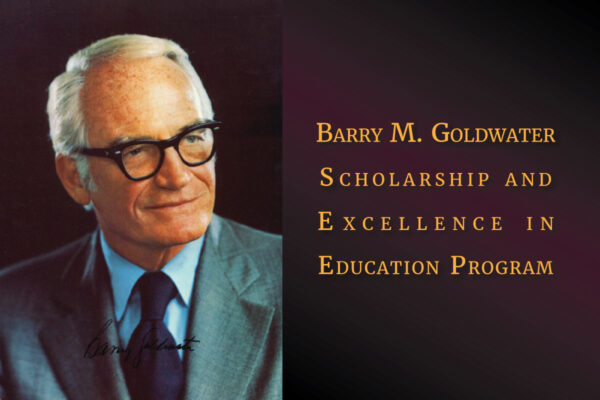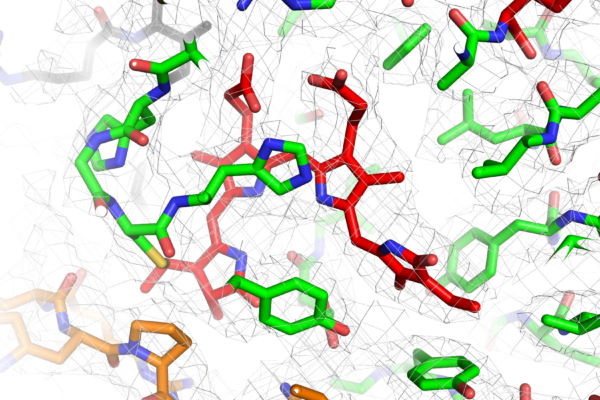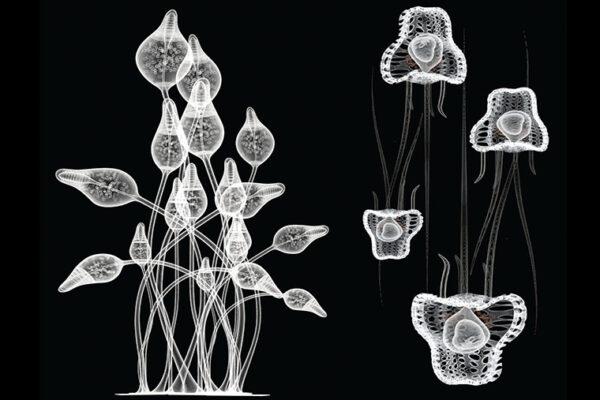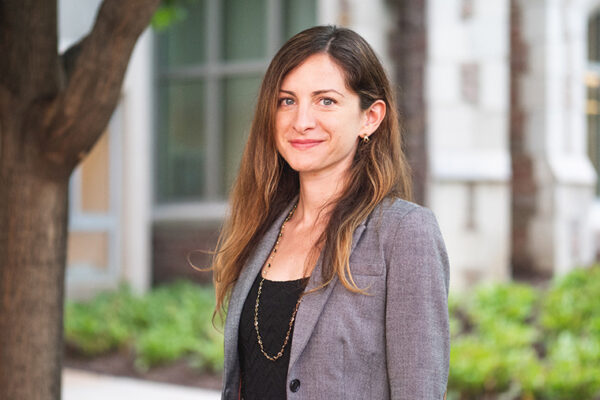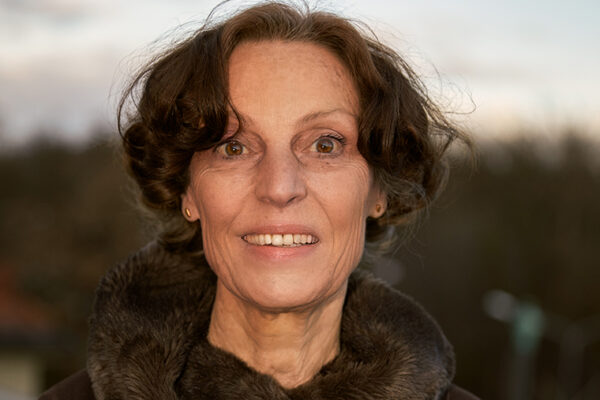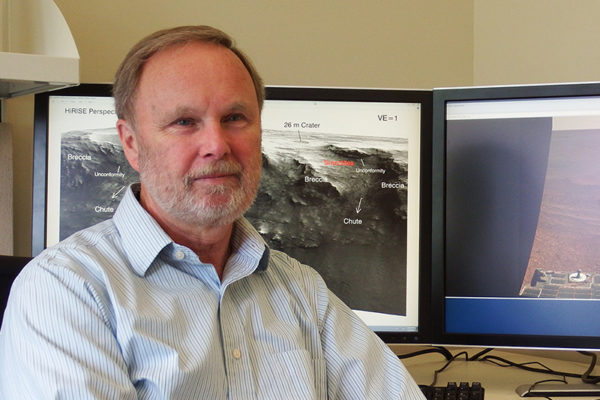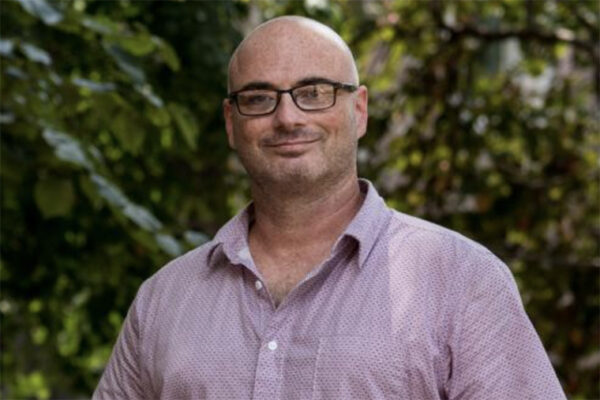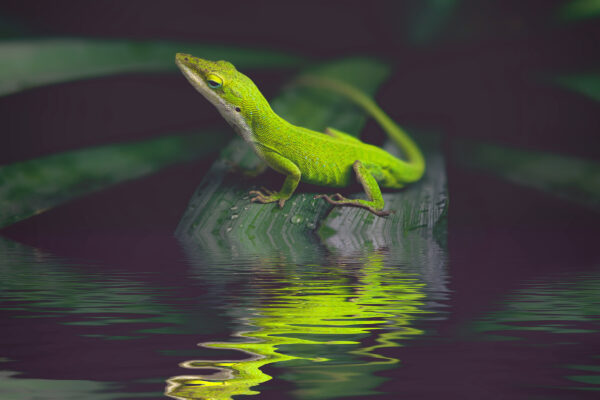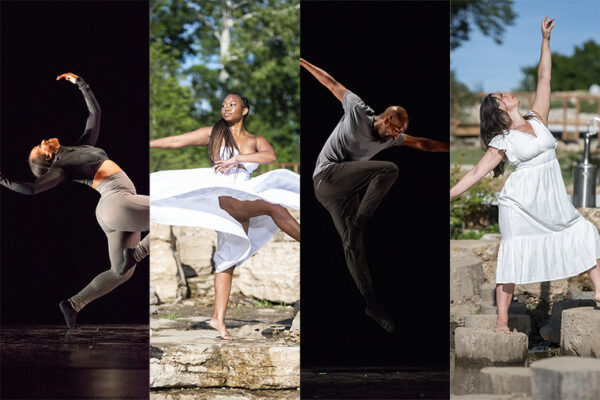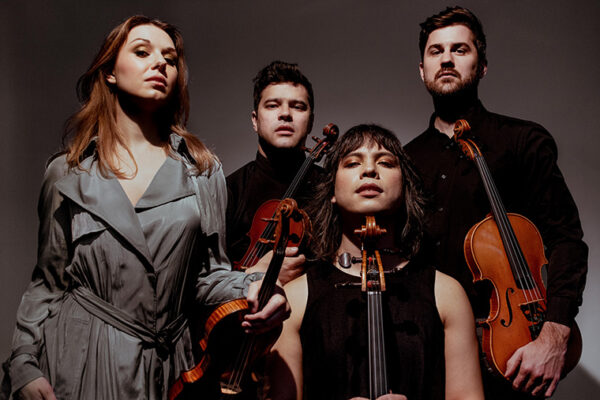Four students win Goldwater Scholarship
Four students at Washington University in St. Louis have received the Barry Goldwater Scholarship, a prestigious award that honors students who conduct research in the natural sciences, mathematics and engineering.
Molecular ‘blueprint’ illuminates how plants perceive light
Biologists led by Richard Vierstra in Arts & Sciences have determined the molecular structure of the vital photoreceptor PhyB, revealing a wholly different structure than previously known. The findings, published March 30 in Nature, have many implications for agricultural and “green” bioengineering practices.
Architecture, biology and ‘Cellular Transformations’
Architecture inspired by biology is not a new concept. But typically, “architecture has imitated the imagery of biology and nature without awareness of the underlying mechanisms,” argue Ram Dixit and Sung Ho Kim in “Cellular Transformations: Between Architecture and Biology.”
Konecky launches new program to support diversity in the geosciences
With the support of the David and Lucile Packard Foundation, climate scientist Bronwen Konecky in Arts & Sciences is piloting a new program to attract and support underrepresented students in the geosciences and prepare them for further studies and careers in the field.
Renner edits special issue on separate sexes in plants
Biologist Susanne S. Renner in Arts & Sciences assembled and edited 15 papers that synthesize and challenge the current understanding of how plants separate into male and female functions for Philosophical Transactions B, published by The Royal Society.
Arvidson wins St. Louis Astronomical Society award
Raymond E. Arvidson in Arts & Sciences won the 2022 Richard D. Schwartz Supportive Faculty Award from the St. Louis Astronomical Society.
Ben-Shahar receives NSF grant
Yehuda Ben-Shahar, professor of biology in Arts & Sciences, won a $190,388 supplemental award from the National Science Foundation.
How geography plays a role in evolution
Biologist Michael Landis has developed a new method to measure the extent to which regional geographic features — including barriers between regions, like mountains or water — affect local rates of speciation, extinction and dispersal for species. He considered anole lizards as a test case.
MFA dance concert returns to Edison Theatre March 26
Four choreographers — Marcus Johnson, Charis Railey, Ashley L. Tate and Jane Tellini — will debut new work in Edison Theatre March 26 as part of the 2022 MFA Student Dance Concert, presented by the Performing Arts Department in Arts & Sciences.
Grammy Award-winning Attacca Quartet April 3
The Attacca Quartet, one of the most versatile and outstanding ensembles performing today, will perform works by Caroline Shaw, Philip Glass, Arvo Pärt and Maurice Ravel April 3 as part of the Great Artists Series, sponsored by the Department of Music in Arts & Sciences.
View More Stories
